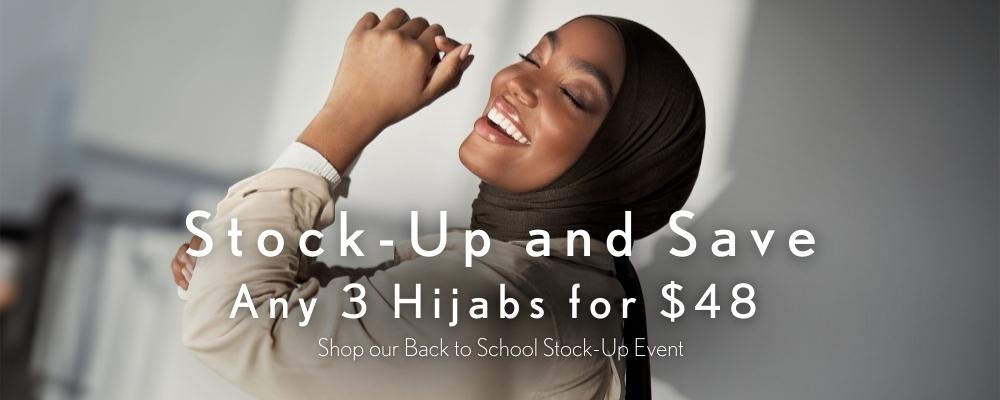Finding Our Well Being & Seeking Self Care in the Mundane and Simple Tasks of Our Lives
Lifestyle
|
Aug 10, 2023
|
7 MIN READ

Image source: Pexels; photo by Maahid Photos
In an era where the pursuit of mental and physical wellness is at the forefront of our cultural consciousness, there's a prevailing notion that true happiness lies in grand gestures, major life changes and significant milestones. But here’s a fact: Unless you’re uber-rich, mundane and simple tasks will be part of your life, and those tasks can also be sources of wellness.
Amidst this pursuit of the extraordinary, we often overlook the value of the mundane and the simple tasks that pepper our daily lives. Contrary to popular belief, finding wellness and contentment can often be found in the menial tasks we tend to dismiss.
The buzzword these days is self-care. And the modern obsession with self-care and self-prioritization has its merits. Focusing on meditation, exercise, healthy diets and mindfulness practices has contributed positively to many lives. However, intense emphasis on popular cultural representations of wellness sometimes causes us to neglect the smaller, seemingly insignificant tasks that often can’t be neglected and CAN impact our overall well-being.
Consider the act of making one's bed each morning. It's a simple task that takes only a few minutes, yet the psychological benefits are profound. Making the bed can set a positive tone for the day ahead, providing a sense of accomplishment and order in an otherwise chaotic world. Similarly, tidying up a living space might be considered a "menial" task, but decluttering can remarkably impact mental clarity and focus.
There is wellness to be found in the weeds of life. And it comes down to how you think about it.
Small Things Can Reap Big Benefit
Intrinsic satisfaction comes from completing tasks that require minimal effort but offer tangible rewards. Washing dishes, folding laundry and sweeping the floor may seem inconsequential. Still, they contribute to a sense of control and accomplishment and help to maintain a stable quality of life for those living in a home. And sure, having to do these tasks in what feels like endless repetition can feel like drudgery at times. But think about it like this - you may not have control over other things, but you DO have control over these tasks that always live in our lives.
In a world that bombards us with constant stimuli and seemingly insurmountable challenges, these minor tasks offer a chance to step back, regroup and find solace in the present moment.

Image source: Pexels
There's an almost meditative quality to menial tasks. The repetitive nature of actions, like chopping vegetables, watering plants or even ironing clothes, can induce a state of mindfulness. This mindfulness, in turn, promotes relaxation, reduces stress and cultivates a deep connection to the present. When we fully engage in the task, the worries of the past and anxieties about the future momentarily fade away.
Furthermore, these minor tasks often foster a sense of gratitude to Allah (S). When we acknowledge the privilege of having clothes to fold, dishes to wash and a home to tidy, we develop a heightened appreciation for the basics that we might otherwise take for granted. This shift in perspective can lead to a more positive outlook on life and a greater sense of fulfillment.
Sweat The Small Stuff
Below are a few things that may not seem like they can do much to promote our wellness but can be quite beneficial:
1. Hydrating regularly: Drinking adequate water throughout the day is crucial for maintaining physical well-being. Staying hydrated supports digestion, circulation, skin health and overall bodily functions. Keep a water bottle and take sips regularly to stay sufficiently hydrated.
2. Taking short walks: Incorporating short walks into your daily routine, whether a stroll during your lunch break or a brief walk after dinner, has numerous benefits. Walking improves circulation, enhances mental clarity, reduces stress and can spark creativity. It's a simple way to get some physical activity and fresh air.
3. Make intentions: We’ve written so much here at HH about the benefits of making intentions in everything you do. Whether it’s making dinner nightly or vacuuming, make the intention that you’re doing this for the sake of Allah (S) and the health and well-being of yourself and your family. It makes a difference.

Image source: Pexels
4. Deep breathing or mini meditations: Taking a few moments to practice deep breathing or engage in mini-meditation sessions can calm your nervous system. Deep breaths or a brief mindfulness session can reduce stress, lower blood pressure, and improve focus. I am a fan of box breathing, but you can find what works for you.
Combining the practice of dhikr with deep breathing and meditation creates a powerful synergy of mindfulness and spiritual connection. As you engage in deep breaths, inhaling calmness and exhaling worries, incorporating dhikr – repeating sacred phrases or names of the divine – adds a layer of focus and intention.
Each breath becomes a rhythm, a reminder of the sacred within and around you. With each repetition of dhikr, you deepen your connection to the present moment and strengthen your Iman. This harmonious practice infuses tranquility into your being, aligning the rhythm of your breath with the rhythm of your heart and soul.
5. Gentle stretching: Dedicate a few minutes daily to stretch gently. This can help improve flexibility, prevent muscle stiffness and promote better posture. Incorporating simple stretches into your routine can help reduce the risk of injuries and alleviate tension. It becomes something you’re doing for yourself, and that is an integral part of wellness.
Maintain an emphasis on the gentle in gentle stretching to prevent injury. You don’t have to become a yoga pro; if you are, that’s fine too, but you don’t want to overdo it.
6. Expressing gratitude: Taking a moment each day to reflect on what you're grateful for can foster a positive mindset. It is easy to overlook the many blessings with so much stress and tension from life’s demands surrounding us. Gratitude practice has been linked to improved mental health, increased happiness, and a stronger sense of overall well-being.

Keeping a gratitude or du'a journal can be helpful in finding peace and serenity in the daily tasks of life.
I know it may seem hard to find gratitude for the mundane tasks of life. But as I wrote above, try tying it back to gratitude that you have these things. You have dishes to wash. You have a home where you have safe shelter. You have a bed to make. You have food to prepare for dinner. Shukar Alhamdulillah for all of that.
A gratitude journal can be a good way of reflecting on blessings. Keeping a gratitude journal is akin to opening a window to the blessings of Allah (S) in our lives. With each entry, we capture the fragments of grace that might otherwise slip through the cracks of our busy days.
(Journaling can also help in healing trauma. Learn more about it here.)
7. Unplugging before bed: Disconnecting from electronic devices at least an hour before bedtime can significantly improve your sleep quality. The blue light emitted by screens can interfere with your body's production of melatonin, a hormone that regulates sleep. Instead, engage in relaxing activities such as reading, journaling or gentle stretching to wind down. These may feel like small practices, but they can have a significant impact on your wellness.
Embracing “Sunnah before bed” practices is a profoundly enriching way to conclude your day and prepare for a restful night's sleep, a critical part of wellness. The Prophet (saw) would do many things before going to sleep, including:
- Make wudu
- Recite Surah Ikhlas, Falaq and An-Nas
- Dust (wipe or shake out) the bedding
- Recite Subhanallah, Alhamdulillah, and Allahu Akbar 30 times.
- Recite Ayatul Kursi
- Recite the last two verses of Surah Baqarah
Embracing the wellness potential of menial tasks can be an invitation to find balance – a reminder that the path to well-being isn't solely paved with grand gestures. There is wellness in the weeds, the daily tasks and the small things we do in our lives. True contentment can be uncovered by finding joy in the rhythm of our daily lives in the moments that might otherwise go unnoticed.

Image source: Unsplash
It's not uncommon for many of us to view menial tasks as mere drudgery –chores to be checked off the list without much thought or enthusiasm. While forcing yourself to like these tasks might lead to frustration, an alternative approach can foster a sense of contentment.
Instead of struggling to find joy in every task, consider identifying a small daily activity that resonates with you and brings peace. This task doesn’t have to be grand or time-consuming; it could be something as simple as sipping your morning coffee mindfully, tending to a potted plant, sucking up the crumbs through vacuuming or even just gazing out of the window.
Recognizing that not all tasks need to be cherished equally and focusing on finding a pocket of serenity amid your routine can transform mundane moments into opportunities for personal connection and tranquility.
As the world continues to whirl with its demands and expectations, it's worth remembering that the pursuit of wellness doesn't have to be exclusively glamorous or groundbreaking. The quest for happiness and contentment can be woven into the fabric of our ordinary routines in the simple acts that bring order, mindfulness and gratitude to our lives.
By recognizing the inherent wellness in menial tasks, we open ourselves to a more prosperous, more fulfilling existence that finds peace in the present and contentment in the seemingly trivial.
Subscribe to be the first to know about new product releases, styling ideas and more.
What products are you interested in?


